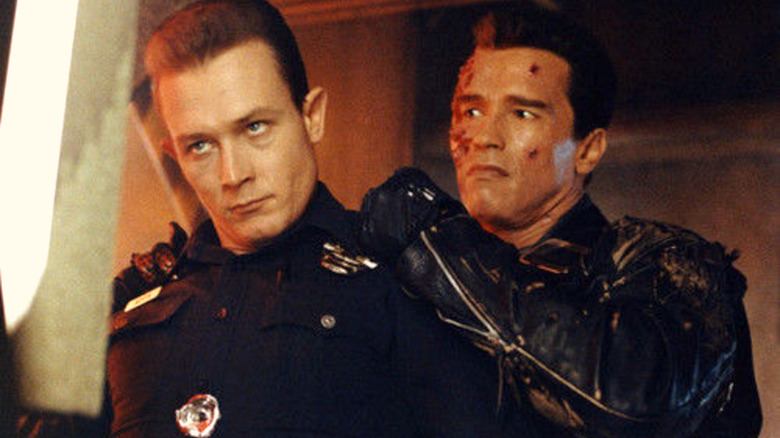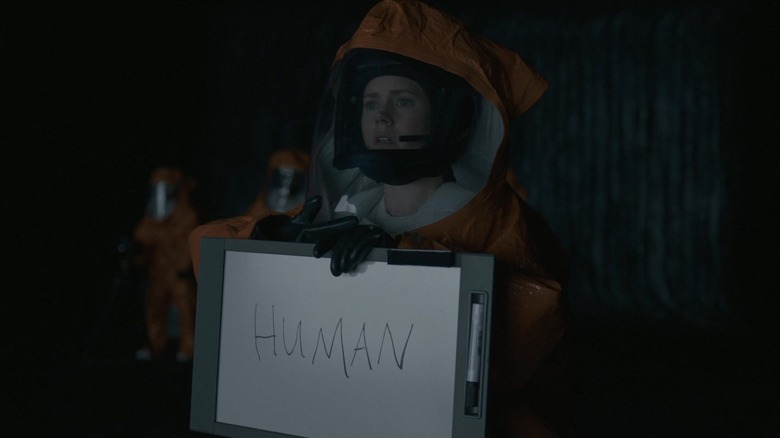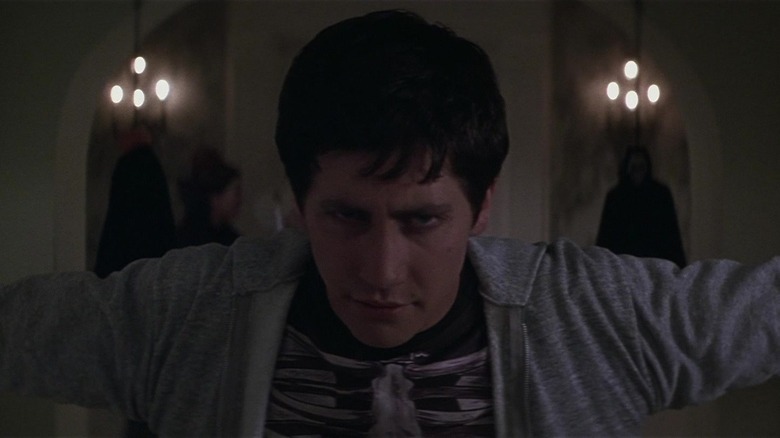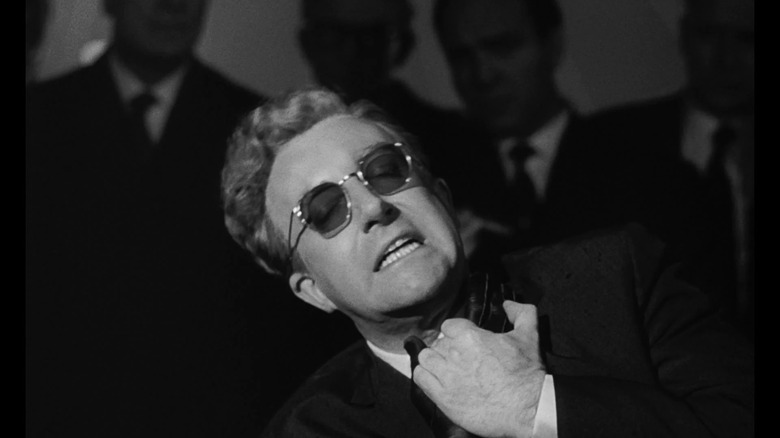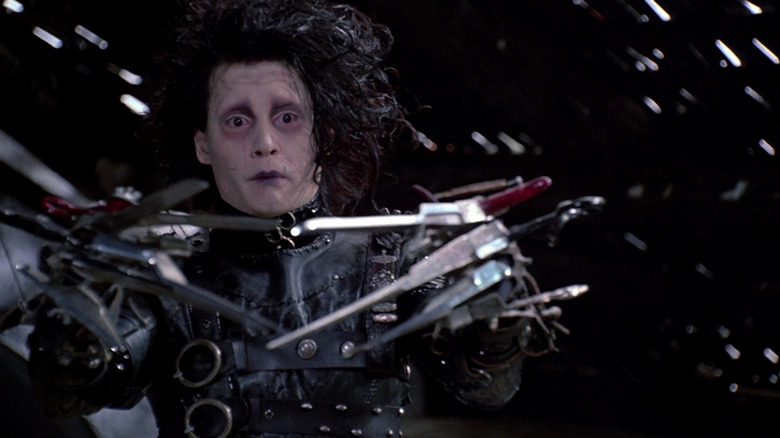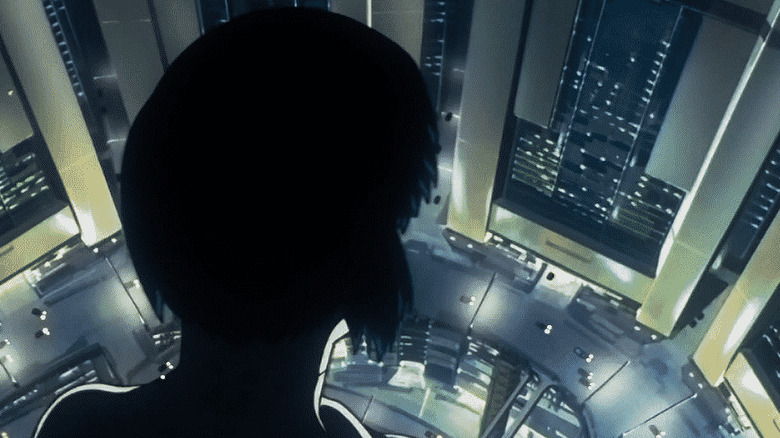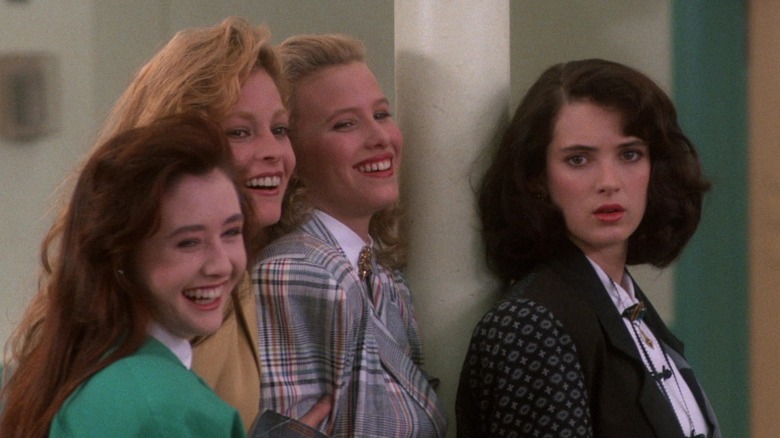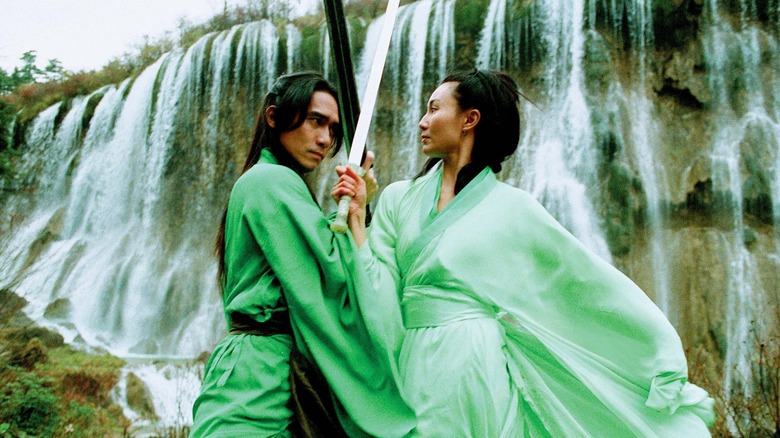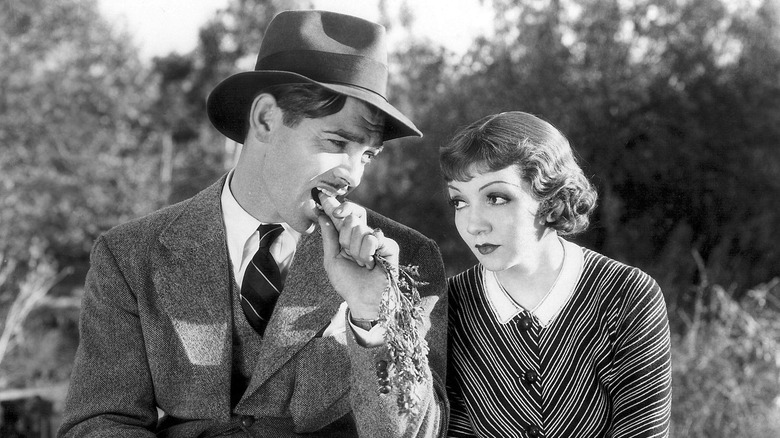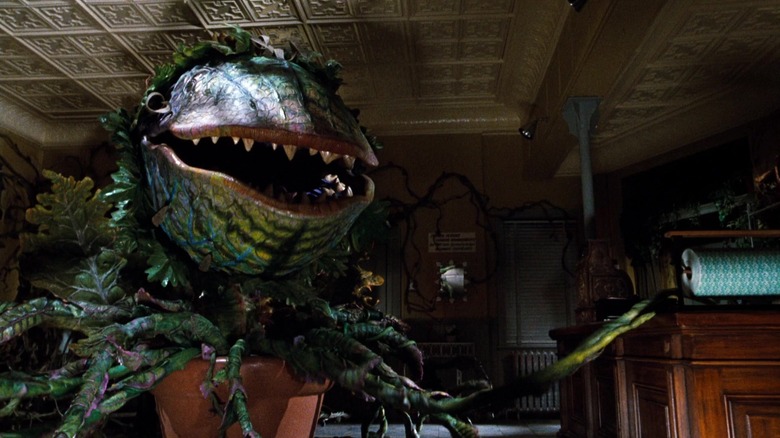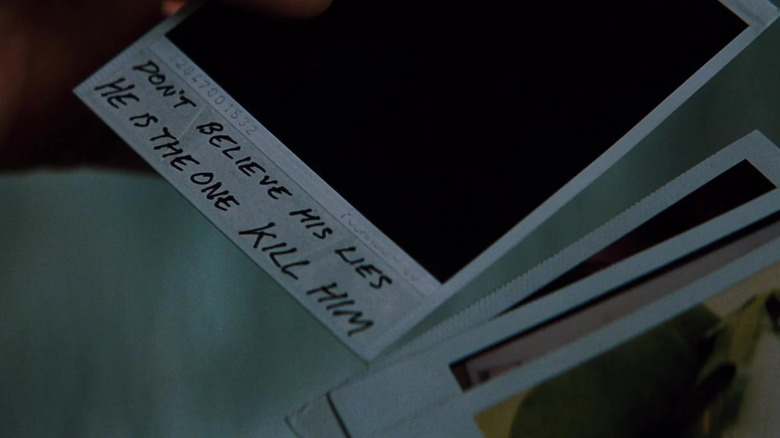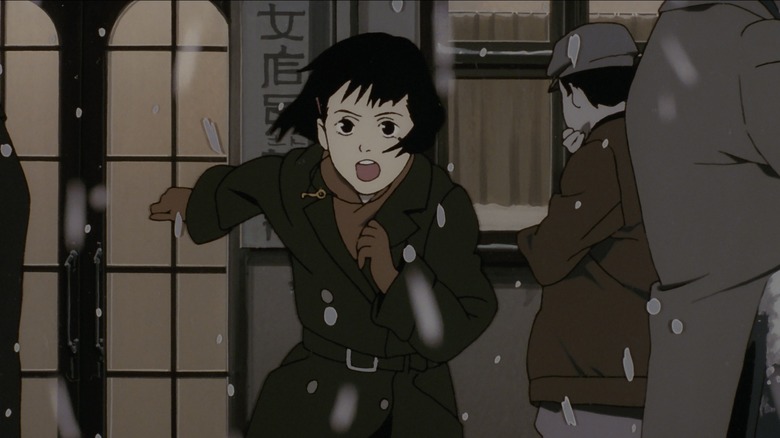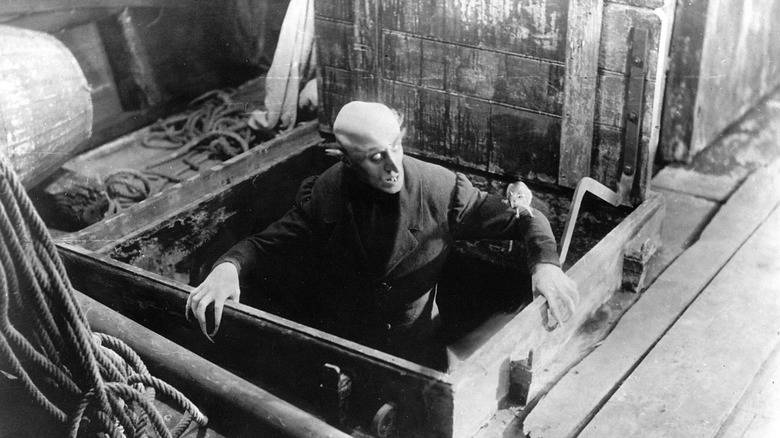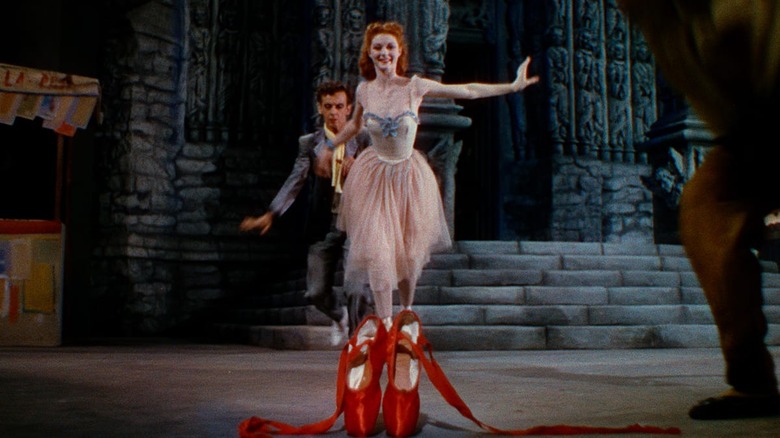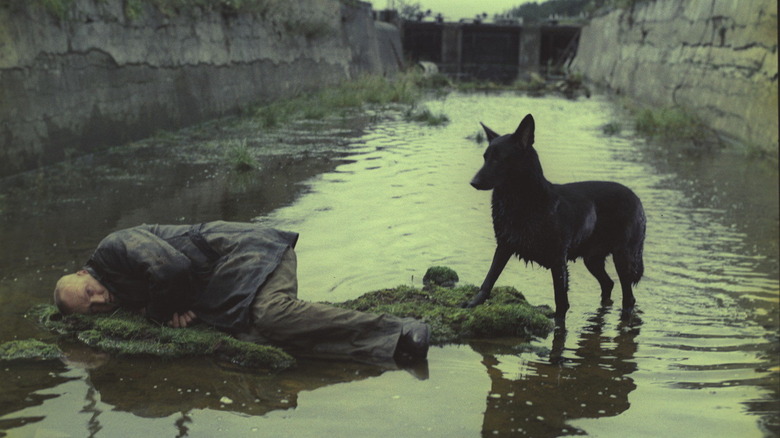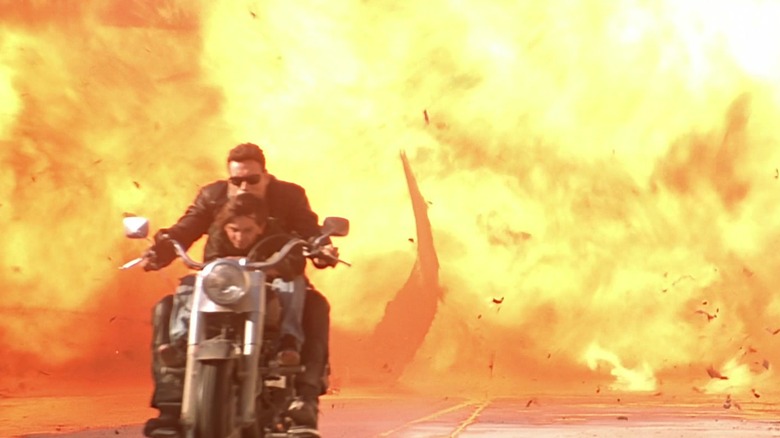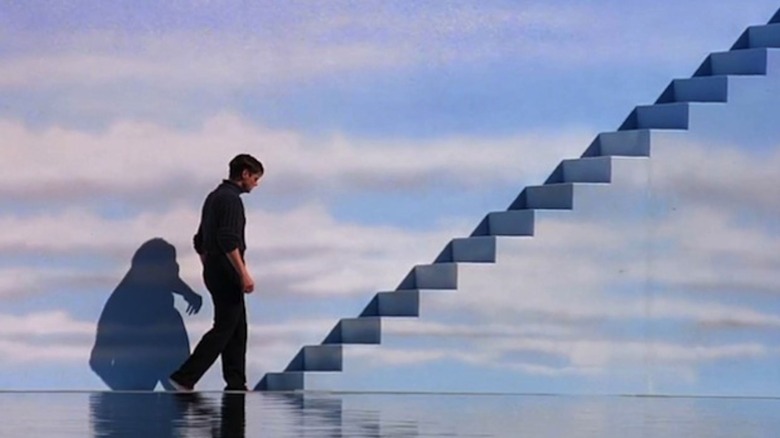The 15 Best Movies On YouTube TV In 2024
Did you know YouTube TV has many full movies available for free? Not just pirate uploads like you might expect, but hundreds, maybe even thousands, of actual official legal streams of movies are available on the site, all without spending a penny. While there's lots of obscure schlock among these movies, there are also a surprising number of movies you've heard of — and some of them are great!
Yet despite this impressive library, sorting through what films are available on YouTube can be harder to figure out compared to more organized streaming services like Netflix, Hulu, or Max. That's why Looper has gone through YouTube's collection as thoroughly as possible to tell you about the best movies you can watch for free with ads (or ad-free with YouTube Premium) on the site in 2024. This list, organized in alphabetical order by title, will include only one film per director and one film per series.
Arrival
With 2016's "Arrival," an adaptation of Ted Chiang's short story "The Story of Your Life," Denis Villeneuve announced himself as Hollywood's new go-to director for intellectual science fiction (he'd go on to make "Blade Runner 2049" and the "Dune" movies). This first contact drama about decoding an alien language received eight Oscar nominations and a win for best sound editing — though leading lady Amy Adams did not get nominated for best actress in one of the biggest Oscar snubs of all time.
Adams plays the linguist Louise Banks, a mother mourning her daughter, tasked with being America's emissary to the heptapod aliens and preventing a global war. The emotional intensity of Banks' story grabs one's attention from the start, but the full extent of its power only becomes apparent at the film's mind-bending ending — which is also the beginning. The heptapods don't experience time in a linear fashion, and viewers won't either in this expert feat of editing.
Donnie Darko
Richard Kelly's directorial debut "Donnie Darko" bombed in limited release in 2001 — it was not the best timing to release a film involving an airplane accident right after 9/11. Yet this apocalyptic 1980s time travel psychological thriller, starring Jake Gyllenhaal as its titular troubled teen messiah, inadvertently captured the darkness of the national mood better than most any other movie at the time and became a cult classic on DVD and in repertory screenings.
If you're watching the film's theatrical cut for the first time, it's best not to try too hard to understand it, but rather go with the flow of its captivating weirdness. And if you're too lost, you can look up explainers for the most confusing moments in "Donnie Darko" afterward. The director's cut, released in 2004, is also available on YouTube, but it arguably explains too much and is widely considered inferior to the theatrical version.
Dr. Strangelove or: How I Learned to Stop Worrying and Love the Bomb
A rare full-blown comedy from the legendary auteur Stanley Kubrick, 1964's "Dr. Strangelove or: How I Learned to Stop Worrying and Love the Bomb" took the structure of Peter George's novel "Red Alert," a serious thriller about nuclear annihilation, and turned it into a farce. The bold Cold War satire frightened studio executives, but went on to be celebrated as a classic. Roger Ebert declared it "arguably the best political satire of the century."
Peter Sellers improvised much of the hilarious dialogue for his three different characters: the British Group Captain Lionel Mandrake, American President Merkin Muffley, and the former Nazi scientist Dr. Strangelove. The comedy still gets laughs — and the ending still haunts — even if the end of the Cold War has thankfully made its darkest subject matter less topical. Of course, some bits are still topical: conspiracy theorists droning about fluoride will forever sound like Sterling Hayden's Jack T. Ripper screaming about his "precious bodily fluids."
Edward Scissorhands
Looper's Nina Starner's ranking of Tim Burton movies from worst to best recognized the 1990 film "Edward Scissorhands" as the director's crowning achievement. It is undeniably Burton's most personal film, with the character of Edward (Johnny Depp) reflecting the filmmaker's feelings of alienation as a teenager in suburbia. It's also one of the few truly original stories in Burton's filmography, a fresh fairy tale built to his pop-goth sensibilities rather than simply slathering an old IP with his distinctive style.
The story of a good-natured Frankensteinian being left unfinished by his late creator (Vincent Price), unable to touch the woman he loves (Winona Ryder) due to his sharp mechanical fingers, is by turns funny, romantic, tragic, and intensely relatable to anyone who's ever felt different. Composer Danny Elfman, production designer Bo Welch, makeup artist Ve Neill, and effects artist Stan Winston all turned in career-best work for this lovely modern classic.
Ghost in the Shell
YouTube offers both the original 1995 cut of Mamoru Oshii's cyberpunk anime "Ghost in the Shell" and its 2008 "special edition" re-release "Ghost in the Shell 2.0." The original's mostly hand-drawn animation remains gorgeous enough that the CG enhancements of the "2.0" version feel superfluous, but either version provides a thoughtful and thrilling experience.
This adaptation of Masamune Shirow's manga is set in the year 2029 — so if its predictions are correct, we're about five years away from everyone being cyborgs and robots developing their own consciousness. Major Motoko Kusanagi (Atsuko Tanaka), the assault team leader for the Section 9 intelligence agency, is almost entirely cybernetic except for her brain, so she's already grappling with existential questions about what it means to be human even before investigating the mysterious "Puppet Master" program, a sentient "ghost" without a "shell" of its own. The film's violent action sequences inspired the Wachowskis' work on "The Matrix" trilogy.
Heathers
YouTube's library is very good for cult movies. "Heathers," directed by Michael Lehmann and written by Daniel Waters, bombed in 1989, as its distributor New World Pictures went bankrupt. The dark comedy, in which disillusioned popular girl Veronica (Winona Ryder) joins forces with sexy sociopath J.D. (Christian Slater) to murder Westerburg High School's bullies, offered a satirical rejoinder to the more wholesome John Hughes teen movies of the 1980s.
Audiences didn't know what to make of it at the time, but "Heathers" ended up one of the most influential movies of its genre. Its comic sensibility proved ahead of its time; you can see echoes of its snarky dialogue and violent absurdity in everything from "Buffy the Vampire Slayer" to "Bottoms." Some aspects of "Heathers" are even more shocking now than they were in '89 — jokes about guns in schools play very differently in a post-Columbine world — but much of its social commentary has stayed relevant decades later.
Hero
Zhang Yimou's 2002 wuxia epic "Hero" stars several of China's biggest and best movie stars — Jet Li, Tony Leung, Maggie Cheung, and Donnie Yen — as assassins conspiring against Qin Shi Huang (Chen Daoming), the first emperor of China. Though Yimou claimed apolitical intentions for the film, some have interpreted its message as apologia for imperialism and propaganda for the current Chinese government, so it's worth keeping that in mind when approaching the film critically.
Politics aside, however, "Hero" is a must-see as it's one of the most beautiful martial arts films ever made. Working within a narrative set-up reminiscent of "Rashomon" in its unreliable narration and shifting perspectives, Yimou and cinematographer Christopher Doyle framed each of the five main characters' stories with different color schemes. The masterful use of color makes the amazing fight scenes and operatic drama even more compelling, resulting in a film you can't look away from.
It Happened One Night
The 1934 romantic comedy "It Happened One Night" is one of only three movies so far, along with 1975's "One Flew Over the Cuckoo's Nest" and 1991's "Silence of the Lambs," to sweep the five major Oscar categories: picture, director (for Frank Capra), actor (for Clark Gable), actress (for Claudette Colbert), and screenplay (for Robert Riskin). Ninety years later, it's still a delightful piece of entertainment that set the stage for pretty much every romcom ever made since.
Colbert plays Ellie Andrews, a sheltered heiress traveling from Florida to New York to escape her dad (Walter Connolly) and reach her husband (Jameson Thomas). Gable's smart-talking newspaper reporter Peter Warne — a character who inspired Bugs Bunny — helps her on her travels in exchange for covering her story ... and the two companions fall in love with one another. Released just months before the Hayes censorship code went into effect, the film got away with a lot of clever innuendo.
Little Shop of Horrors
Before composer Alan Menken and the late lyricist Howard Ashman defined the Disney Renaissance with the soundtracks to "The Little Mermaid," "Beauty and the Beast," and "Aladdin," they made their mark off-Broadway with "Little Shop of Horrors," a high-camp musical adaptation of a Roger Corman B-movie about a killer plant. In 1986, this strange little sci-fi comedy made the jump back to the big screen under the director of Muppet genius Frank Oz.
The "Little Shop of Horrors" movie backtracked on the stage show's apocalyptic ending after poor test screenings, resulting in a happier ending where Seymour (Rick Moranis) defeats the "mean green mother" Audrey II (voice of Levi Stubbs of the Four Tops) and finds happiness with his love Audrey (Ellen Greene). The adaptational changes ended up working, and the mix of catchy songs, great comedic performances, and incredible puppetry make this the sort of musical even those who don't consider themselves theatre kids can enjoy.
Memento
Christopher Nolan's second feature "Memento" (his first, "Following," is also on YouTube) won the Waldo Salt Screenwriting Award at the 2001 Sundance Film Festival. This indie neo-noir film stars Guy Pearce as Leonard Shelby, a man with extreme memory loss seeking vengeance against his wife's murderer. It established Nolan's gift for non-linear storytelling and explorations of the nature of time and truth.
Presaging the multiple levels of dream realities in "Inception," the intersecting perspectives of "Dunkirk," and whatever was happening in the "Tenet" timeline, "Memento" reveals itself in two opposite directions. The black-and-white scenes occur in chronological order, while the color scenes happen in reverse order, forcing the viewer into Shelby's amnesiac perspective as he struggles to piece together his past through the hints he's given himself via notes, photos, and tattoos. Some viewers might need to take notes themselves to keep up, but the complicated structure works in the film's favor, staying thrilling and thought-provoking throughout.
Millennium Actress
Satoshi Kon only got to direct four films and one TV series in his tragically short lifetime, but all of them are must-sees. The "Inception"-inspiring dream adventure "Paprika" is probably his most popular and is also on YouTube, but 2001's "Millennium Actress" is even better — it's perhaps Kon's moving work and one of the best romantic anime movies ever made.
A hybrid of historical epic and psychological character study, "Millennium Actress" follows a documentary crew interviewing actress Chiyoko Fujiwara (voiced by Miyoko Shoji, Mami Koyama, and Fumiko Orikasa at different ages) about her life, her career, and her search for her long lost love. In her memories and recollections, real events she experienced throughout the 20th century blend together with the distant pasts and sci-fi futures depicted in the movies she starred in. It's not the type of story most would expect to see in animation, but it couldn't possibly be told any other way.
Nosferatu
Because anyone can upload films in the public domain, YouTube is a great resource for looking up silent films from the 1920s. The 1922 F.W. Murnau classic "Nosferatu" is one that horror fans will still want to check out over a century after its release, whether to learn their film history, to prepare for the upcoming remake directed by Robert Eggers, or simply to understand who was flickering the lights in that one "SpongeBob" episode.
Ripped off from "Dracula" without the Bram Stoker estate's permission, "Nosferatu" stands on its own merits as a visually stunning masterpiece of the German Expressionist movement. Max Schreck's performance as Count Orlock remains eerie to this day — he's so believable as a diseased, animalistic monster that the 2000 comedy "Shadow of the Vampire" proposed the actor actually was a vampire. Murnau's film invented the idea of sunlight killing vampires (in Stoker's novel, it merely depowers them).
The Red Shoes
Martin Scorsese has showered tons of praise on the 1948 Michael Powell and Emeric Pressburger film "The Red Shoes," and he funded the restoration that's currently available to stream. We can all be thankful for this restoration work, so modern audiences can fully appreciate the gorgeous vibrancy of the film's Technicolor cinematography. They don't make 'em like this anymore.
The first hour of "The Red Shoes" builds the relationships between the central characters: Composer Julian Craster (Marius Goring), ambitious ballerina Victoria Page (Moira Shearer), and controlling impresario Boris Lermontov (Aton Walbrook). Where it really becomes something special is in the 17-minute ballet centerpiece, adapted from Hans Christian Andersen's fairy tale "The Red Shoes" and featuring some of the most incredible dancing and "How did they do that?" editing ever put to film. The fairy tale's tragic ending foreshadows the film's haunting conclusion, which some have cited as an influence on the likes of "Black Swan."
Stalker
Mosfilm, the former official movie studio of the Soviet Union, has uploaded a bounty of its classic films online. Andrei Tarkovsky's 1979 sci-fi drama "Stalker" stands out as one of the most universally acclaimed films in this selection. Keep in mind, however, that this isn't for casual viewing, and the slow rhythms of this nearly three-hour movie are likely to play more effectively in a dark, distraction-free theatre than on YouTube.
The story, adapted by Arkady and Boris Strugatsky from their own novel "Roadside Picnic," follows a group of travelers — the Stalker (Alexander Kaidanovsky), the Writer (Anatoly Solonitsyn), and the Professor (Nikolai Grinko, dubbed over by Sergei Yakovlev) — entering the restricted area known as "the Zone," a psychics-defying realm with a wish-granting room at its center. Much of the movie was filmed around actual abandoned power plants — poisons from which gave Tarkovsky the cancer that eventually killed him. It's a work of eerie, hypnotic beauty that asks big philosophical questions about perception, faith, and desire.
Terminator 2: Judgment Day
For those who prefer their science fiction with a lot more action and explosions, YouTube also has you covered with James Cameron's 1991 blockbuster "Terminator 2: Judgment Day." Fans of the time-traveling cyborg series will always debate whether the more horror-focused original or the bigger-scale sequel is superior, but Looper's Jennifer Arbues ranked "Terminator 2" as the best of the franchise, making a strong argument for its refreshing character development.
This time around, Sarah Connor (Linda Hamilton) is taking the initiative to stop the rise of the machines herself. The T-800 (Arnold Schwarzenegger) returns as a good guy, protecting future resistance leader John Connor (Edward Furlong) from the new villain, the T-1000 (Robert Patrick). The liquid metal effects on the T-1000, which necessitated a record-breaking budget and involved a mix of groundbreaking computer animation and state-of-the-art practical effects, still look awesome. "T2" solidified Cameron's reputation as one of Hollywood's greatest action directors, and one who knows how to up the stakes for a sequel.
The Truman Show
Peter Weir's 1998 dramedy "The Truman Show" foretold the rise of reality television, proved Jim Carrey could excel in more serious roles, and stands alongside the likes of "The Matrix" and "Dark City" as one of the great turn-of-the-millennium movies exploring growing anxieties about technology and the nature of reality.
At the start of the film, Truman Burbank (Carrey) has no idea he's the star of a popular 24/7 TV program and that his hometown of Seahaven Island is an elaborate set. The show's producer, Christof (Ed Harris), has made it nearly impossible for Truman to escape ... but when Truman figures out something is off about his surroundings, viewers around the world are rooting for him to make it to freedom. The scenario's so vividly compelling that it's spawned a full-blown category of delusions — "You know you've made it when you have a disease named after you," said the film's screenwriter, Andrew Nichol (via 3 News NZ).
